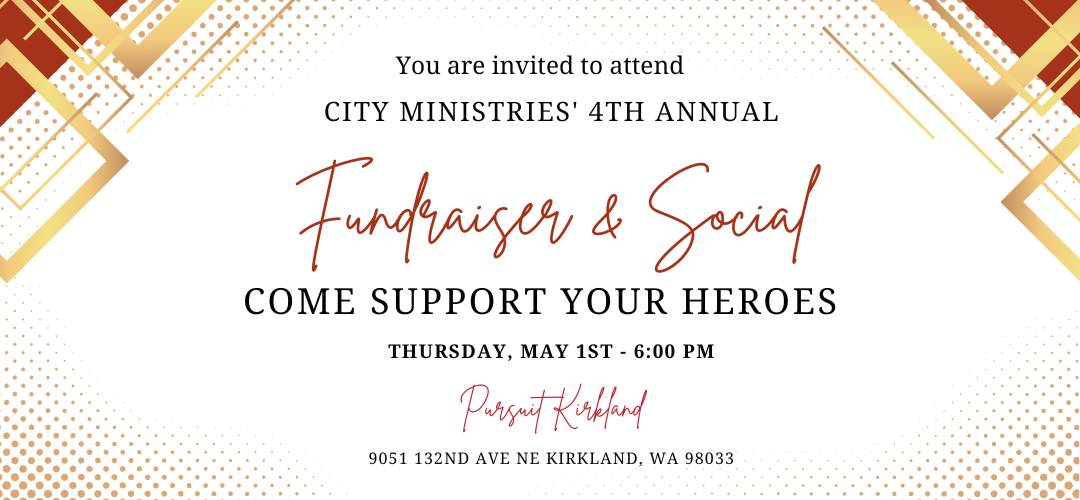When it comes to foster parenting, no two placements are the same.
What worked for your last foster child may not have the same impact on your current placement. And that’s what makes foster parenting so challenging. But, when you have a special needs placement, well, that’s a whole new ball game.
A common special need among foster children is Fetal Alcohol Spectrum Disorder (FASD).
It’s believed that 80% of children in foster care1 have an FASD. So if you haven’t already had a placement with FASD, chances are pretty good you will.
If you’re a foster parent in the greater Seattle area and need more support and resources, email City Ministries Child Placement Agency today. As a private foster agency in Washington, we’re here to support you. Our knowledgeable team has the tools you need for your foster child.
Placements happen without much notice. Often with little background information on the child.
Sometimes your caseworker might not know about any pre-existing conditions. Learning struggles, health disorders, or behavioral issues show up later. Including a foster child with FASD.
Know the common signs and symptoms associated with FASD. This allows you to get your child help sooner.
What to Watch For When Determining if Your Foster Child Has FASD
Common physical defects to make note of.
Take a look at your foster child’s facial features.
Children with FASD have small eyes, a thin upper lip, and smooth skin between the upper lip and nose. You might also notice their nose is shorter and turns up at the end.
Other physical features to pay attention to include:
- Abnormalities in their joints, limbs, and fingers
- Smaller than children their age
- Vision and hearing impairments
- A smaller circumference of the head
- Smaller brain size
It’s always a good idea to chat with your child’s doctor if you’re unsure about any of these.
Delays in the brain and central nervous system development.
If your foster child struggles to keep balance or has poor coordination this can be a sign of FASD. You might also notice them struggling to sit still in school. Or being jittery and hyperactive in comparison to his or her classmates.
Other brain and central nervous system problems to pay attention to include:
- Learning struggles and delays in development
- Trouble paying attention and understanding information
- Struggling with reasoning and solving problems
- Not understanding the consequences of their actions
- Quick mood changes
Having trouble sitting still or having a tendency to fall doesn’t mean your foster child is on the FASD. But, it’s worth noting and having a conversation with his or her doctor.
Struggles with social and emotional behavior.
It’s not uncommon for a foster child to be behind with social and emotional skills. But one of the biggest behavioral issues is their lack of conscience. Showing no compassion or concern when someone gets hurt is a good indicator of FASD.
Other social and emotional behavior issues include:
- Showing more aggression than peers
- Getting frustrated and having meltdowns
- Trouble in school, both with learning and getting along with peers
- Struggling to stay on task and work towards a goal
- Acting impulsive and lacking logical reasoning
Asking your child’s teacher for his or her opinion helps you get a bigger picture of your child’s behavior.
Other personality traits associated with FASD.
Foster children with FASD have many positive qualities you don’t want to miss out on.
They have a wonderful sense of humor and are silly. You might find your foster child enjoys being the life of the party. But they can struggle with knowing what’s appropriate and what’s not.
Often he or she can cross the line without meaning to.
Other traits include:
- Craving attention of any kind, even if it’s negative
- Strong-willed when it comes to their perspectives
- Being curious about how things work and go together
- Taking on a victim mentality mindset
If your foster child has FASD there are ways you can help at home to support him or her as they navigate this path. No two people diagnosed with FASDs are the same.
Make adjustments to the following suggestions as you start to understand your foster child’s needs and concerns.
How You Can Help a Foster Child With FASD
If your placement has a diagnosis of FASD, the best way you can help him or her is to take a class. Let the experts be the expert in guiding and educating you.
Until you get into a class, here are tips to help your child as they learn to navigate life through a unique set of lenses.
Recognize his or her strengths and abilities.
It can be easy to be in discipline mode all the time.
This is especially true when parenting a child with FASD. For every correction, attempt to give your foster child a compliment. Praising positive qualities goes a long way when building self-esteem.
Ways to encourage your child include:
- Acknowledging him or her when she does something right
- Letting your child know how proud you are of him or her
- Using a sticker chart to reinforce positive behavior
It’s easy to find ways to correct your child. Try and purposefully seek out times when you can give positive feedback, too.
Keep your foster child’s limitations in mind.
This is one of the best ways to prevent unnecessary meltdowns.
Does your foster child struggle when playing with other children? Avoid group play dates that will only worsen the behavior. Create successful situations for your child instead. This could be one on one playtime with you, doing a puzzle, or an art project.
How you can help your child from reaching his or her limits include:
- Staying on track with your child’s sleep schedule
- Avoiding situations where your foster child spirals out of control
- If a situation is unavoidable, create a calm space where your child can go regroup
Setting your child up for success is the goal. And keeping their limitations at the forefront of your mind makes this easier.
Remember the behavior is brain-based and not willful.
Your foster child isn’t trying to be difficult. Repeat that again and again to yourself.
They’re trying to cope the best they can with all the internal challenges stacked against them. Keeping this in mind reminds you to offer a little extra grace. They operate with a unique set of instructions.
It’s your job to decipher what’s intentional behavior and what’s connected to the FASD.
Ways you can better adjust your perspective include:
- Having realistic expectations of your foster child
- Making note of your child’s behaviors on both the good and bad days
- Learning to redirect your child from whatever is triggering the challenging behavior
Get to know your child and their unique characteristics. This makes it easier to know when to correct negative behavior. But also know when to accept something as part of who they are.
Consistency is necessary.
Whatever you choose to do, make it consistent.
This includes home life, school routine, discipline, and behavior. Consistency lets your foster child understand and predict what’s coming. A regular routine reinforces positive behavior. This increases your child’s ability to process information.
Create a consistent household routine that includes:
- Establishing a predictable morning and bedtime routine
- Keeping a meal schedule
- Following through on appropriate discipline
Most children do well when they know what’s ahead. The more predictable life is for your child with FASD, the better he or she can adjust.
Keep things simple.
A child with FASD struggles with long and short-term memory and may appear forgetful.
They might also struggle with recalling a series of instructions. To avoid setting your child up for disaster, keep things basic. And if possible, write out instructions.
A simple lifestyle with your foster child includes:
- Being specific when you talk to your child
- Asking them to complete one task at a time
- Creating “down days” for your child where they can rest and regroup
Overscheduling a child usually backfires, especially one on the FASD. Be a proactive parent and build rest days into your schedule.
Help your child with multi-sensory learning strategies.
Both at school and home, variety is essential when it comes to your foster child’s learning abilities.
A child with FASD struggles with auditory skills. Using visual aids when teaching him or her something new is helpful. Music is another tool to teach behavior, emotions, and self-regulation skills.
Ways to help your child learn include:
- Singing songs with repetition
- Creating a visual chart with your child’s schedule, chores, and other activities
- Doing hands-on activities
Find what works for your child and continue with it. Talk to your child’s teacher. Communicate about ways your foster child can succeed while at school.
Work with your foster child when it comes to making decisions.
A child’s brain with FASD operates in a unique way. They might not comprehend the consequences of their actions or choices.
You’ll find your foster child struggles when making wise decisions, but this isn’t an act of defiance. Supervising your child helps you guide them through some of these everyday decisions.
How you can help your child with decision-making skills include:
- Learning how to sort out the facts when making decisions
- Talking through outcomes of different situations
- Remembering it takes longer for your child to learn than other kids
Patience and repetition go a long way when it comes to helping your foster child make wise decisions.
What Are the Long-Term Effects for a Child With FASD?
Whether your foster child stays with you or is adopted by another family, understanding the road ahead is helpful.
People with FASD have a lifelong struggle. Especially when it comes to learning and appropriate behavior.
Without the right kind of support system, they’re at a higher risk for:
- Mental health issues
- Legal problems
- School struggles
- Drug and alcohol abuse.
Continuing to be an advocate for your foster child as they learn to navigate life with FASD is crucial. But you don’t have to do it alone.
City Ministries Child Placement Agency has the resources, support systems, and expertise to help you parent your foster child. Send us an email today with your questions, concerns, and needs. We’re here to advocate for you as you advocate for your foster child.
Being a foster parent comes with a lot of responsibilities. Let’s work together and give your child the best chance for success.
“Institutionalized Children and the Risk of Fetal Alcohol Spectrum ….” 15 Feb. 2021, https://www.ncbi.nlm.nih.gov/pmc/articles/PMC7890725/. Accessed 13 Mar. 2023.



